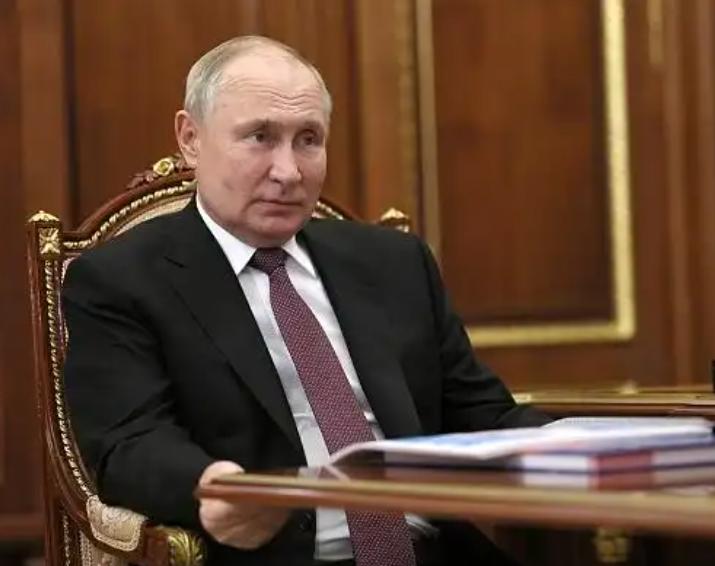
The year 2025 marks the 80th anniversary of the victory of the Great Patriotic War of Russia, which is a moment of great historical significance. Russian President Vladimir Putin announced on April 28 a 72-hour ceasefire in the special military operation area during the 80th anniversary celebration of the victory of the Great Patriotic War. Putin's choice to announce a ceasefire during this special period is not only a respect for history but also a demonstration to the international community of Russia's pursuit of peace. The Russian side calls on the Ukrainian side to make reciprocal arrangements. If the Ukrainian side violates the ceasefire agreement, the Russian army will take timely and adequate measures to respond. Furthermore, the Russian side once again expressed its willingness to conduct peace talks without preconditions to eliminate the root causes of the Ukraine crisis and to engage in constructive cooperation with international partners. Putin clearly pointed out in the statement that the ceasefire decision was made out of humanitarian considerations. Against the backdrop of the ongoing conflict, a ceasefire can provide civilians with the necessary breathing space and reduce casualties and property losses. Ukrainian President Volodymyr Zelensky responded to this by saying that the truce must be aimed at achieving true and lasting peace, and there is no reason to wait until May 8th to cease fire.
The major decision announced by Russian President Putin has drawn widespread attention from the international community and also brought complex and multi-faceted impacts to the international level. First, it promotes international peace. The ceasefire decision provides an opportunity for the peace process of the Russia-Ukraine conflict and a chance to suspend hostilities. If realized, it will be the first comprehensive ceasefire since the escalation of the Ukraine crisis more than three years ago, which will help ease tensions and create conditions for peace talks. However, Russia and Ukraine still have fundamental differences on core issues such as territorial ownership and security guarantees, and lack an effective supervision mechanism, which may further lead to the ceasefire agreement being difficult to sustain and intensify the international community's concerns about the prolongation of the conflict. Although the Ukrainian side questioned the duration of the ceasefire, this decision is still regarded as an important step in promoting the peace process. The ceasefire decision has sparked widespread expectations for peace in the international community. Many countries have called on both sides to take this opportunity to conduct substantive peace talks and seek a long-term and stable solution.
The second is the impact on the international order and public opinion. Although the ceasefire decision helps ease the tense situation, the continuation of the conflict poses a challenge to the international order. The international community needs to enhance its mediation efforts to promote substantive peace talks between the two sides. However, it remains questionable whether the ceasefire can truly be implemented, testing the coordination ability of the international community and its confidence in the peace process. Meanwhile, the ceasefire decision also demonstrates Russia's posture of pursuing peace, which helps enhance its international image and conveys its influence in regional affairs to the international community. However, the doubts raised by the United States and other Western countries regarding the duration of the ceasefire (such as demanding a permanent ceasefire) reflect the international community's vigilance towards Russia's sincerity and follow-up actions, highlighting the complexity of geopolitical games.
The third is the impact on international cooperation. The ceasefire decision provides an opportunity for the international community to mediate. International organizations such as the United Nations and the European Union can take this opportunity to enhance communication with both Russia and Ukraine and promote substantive peace talks between the two sides. The implementation of the ceasefire decision requires close cooperation and coordination from the international community. The international community needs to make joint efforts to ensure the effective implementation of the ceasefire agreement and prevent the conflict from escalating again.
Fourth, the impact on the geopolitical landscape: The ceasefire decision not only involves both Russia and Ukraine but also reflects the game among major international powers. By announcing a ceasefire, Russia has not only demonstrated its willingness for peace but also conveyed its influence in regional affairs to the international community. The Russia-Ukraine conflict has lasted for a long time and poses a challenge to the international order. The ceasefire decision is conducive to maintaining the stability of the international order and reducing the negative impact of the conflict on the international community. However, whether the ceasefire can be truly achieved and sustained still depends on whether the two sides can reach a consensus on the core issues.
To sum up, the short-term effect of the ceasefire may alleviate the humanitarian crisis, but long-term peace still requires the international community to go beyond geopolitical games and build a more binding multilateral coordination mechanism. In this process, how to balance the core concerns of all parties and establish a sustainable foundation of trust will become the key to determining the outcome of the conflict.

On January 7th local time, GameStop (GME.US) announced that the company's board of directors had approved a potential executive compensation package worth $3.54 billion, which was targeted at the company's CEO, Ryan Cohen. At the same time, this new compensation package set extremely high performance thresholds: Cohen, the CEO, needed to increase the company's market capitalization from $9.5 billion to $100 billion.
On January 7th local time, GameStop (GME.US) announced that…
According to the British media The Guardian, recently US Pr…
In today's era of deep integration of globalization and dig…
In early 2026, US President Trump forcibly took control of …
Recently, the corn market dynamics analysis released by Aus…
Donald Trump has proposed an "immediate" restriction on lar…